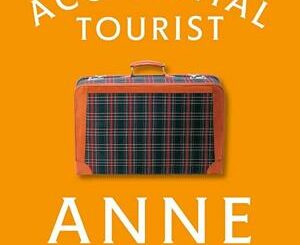When one of Tove Jansson’s novels arrived on my porch the other day, there was a small note inside the parcel with a simple message: “This carton has been packed by C. White.”
It was a way, I suppose, for someone in a distant warehouse to let me know they had taken special care to fill my order.
I’ve kept the packing slip and used it as a bookmark while working through “The Summer Book,” Jansson’s fictional tale of a young girl who spends a season with her father and grandmother on a little island off the coast of Finland. When I spot the small note from C. White each night as I tackle another chapter, I’m reminded that the books in my life usually reach me only after passing through several sets of hands.
Many people I respect do their reading through e-books, and I applaud the written word in all its forms. One of the reasons I continue to like traditional books is their power to evoke reading as a gift shared tangibly, passed from person to person like a dish at the dinner table.
I thought about this some weeks ago while reading “Portable Magic,” Emma Smith’s lively history of how books are made and read. She mentions that as formats multiply, defining what a book is can get trickier. To sort things out, Smith settles on a simple principle: “A book that is not handled and read is not really a book at all.”
I think Smith has it about right. Books can move us because of the words they carry, but they can also spark pleasure as beautiful objects made with thought and skill. That idea also came to mind recently when I read “The Soviet Century,” Karl Schlögel’s mammoth new history of everyday life in the Soviet Union before its collapse.
As a child of the Cold War, I joined with everyone else in following the U.S.S.R. through the headlines, which gave us a general sense of how grim life behind the Iron Curtain could be. Schlögel adds lots of detail to that portrait, including a passage on what it was like to buy books as a Soviet citizen. Despite the oppressive censorship, buying a book could still bring joy as each purchase was wrapped with paper and string to mark the occasion, Schlögel tells readers.
I was moved to think, while reading Schlögel’s history, about the power of books to affirm our basic sense of humanity even when times are hard.
Our times have their own problems, including fresh challenges to reading itself. Because of controversies over library content, books are a political football, a sad reminder that no corner of culture seems free from partisan strife.
We have work to do in reclaiming the brighter possibilities of what books can do. I’ll take a stab at that next week when I share my annual summer reading list.
Email Danny Heitman at danny@dannyheitman.com.


Leave a Reply